Community-driven solutions in Guatemala
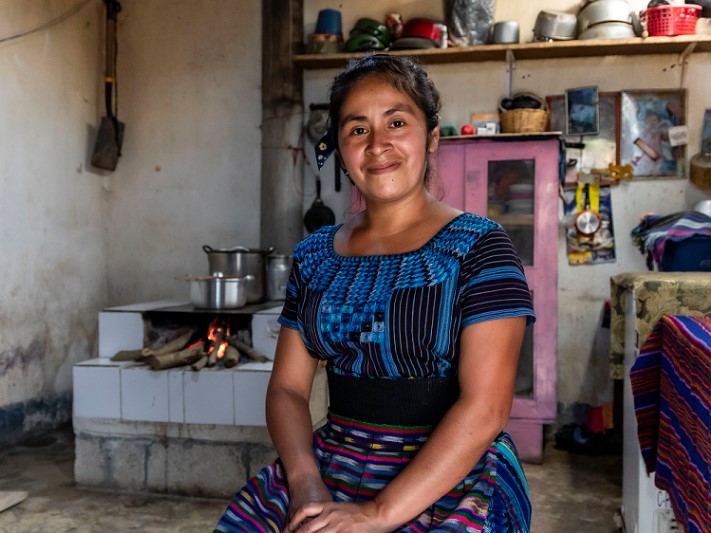
Beneficiary of the wood-saving stove programme. Credit- Estuardo Torres, TNC.
Enhancing local capacities for the inclusive governance and sustainable management of Mayan forests
The Zunil - Atitlán - Balam Juyu' biocultural and sustainable development corridor in the Guatemalan highlands is a continuous strip of forest, important for the ecosystem services they provide to the population, and for their biodiversity, as it is home to more than 150 endemic and endangered species. It is also the ancestral home of several Mayan communities (Tz'utujil, Kaqchikel and K'iche') highly affected by poverty and food insecurity and who base their livelihoods on the goods and services provided by the forest.
Despite its ecological, social, and cultural importance, these forests are being lost at an alarming rate; threatened by forest fires which are exacerbated by prolonged dry seasons due to climate change. These conditions are exacerbated by the government’s inability to provide the socio-economic conditions and technical assistance to promote conservation, access to ecologically sustainable livelihood opportunities, and the participatory governance that ensures buy-in from relevant stakeholders.
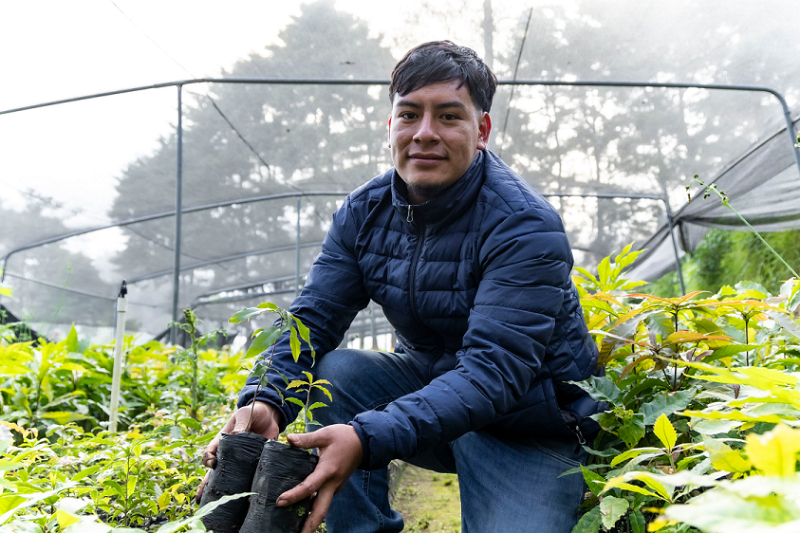
The Nature Conservancy (TNC) Guatemala seeks to improve integrated landscape management to reduce poverty and social inequality in rural Indigenous communities through a project for the conservation and sustainable use of biodiversity. The project contributes to halting the loss of megadiversity in the montane, pine-oak, and broadleaf forests of the Zunil-Atitlán-Balam Juyú Biocultural Corridor caused by forest fires, inappropriate agricultural practices, and illegal logging.
Using an integrated landscape management approach, the project: strengthens the management capacities of state institutions, local governments, and indigenous communities; generates knowledge on local biodiversity; improves inter-institutional coordination and capacity for adaptive fire management; and strengthens indigenous cooperatives that provide improved livelihoods for rural poverty reduction through best practices in shade coffee growing, beekeeping and sustainable forest management local industries
During the first year of the project´s operation, Asociación Vivamos Mejor, the implementer partner located in Sololá, collaborated closely with government regional offices including the National Protected Areas Council (CONAP) and the National Forest Institute to strengthen the regional Conservation Areas Support Roundtable (CASR). The aim is to assist in all stages of the planning of the conservation area and the establishment of new protected areas, as well as coordinating integrated fire management efforts.
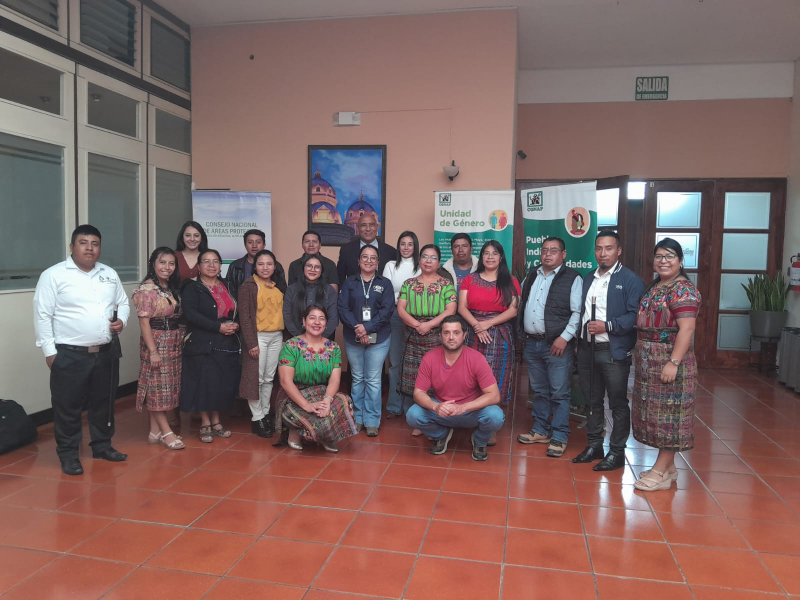
This roundtable includes most of the corridor stakeholders and conservation area managers from Sololá and Chimaltenango. With the project´s support, is expected that the CASR, or a commission within it, will serve as the cross-sector platform that can lead the planning and management of the corridor. The most recent CASR´s meeting promoted by the project involved representatives from two central government institutions, CONAP and Atitlán Basin Sustainable Management Authority; eleven municipalities; five representatives from private nature reserves; five representatives for the Private Nature Reserves Association; one indigenous authority that manages a conservation area, one university that manages two conservation areas; and four non-government organisations. Regarding capacity building, for the next year, there are workshops planned with CASR members and municipal gender equality units. A presentation of the legal framework of the Bureau has been initiated to update the knowledge of stakeholders, especially newly elected officials participating for the first time in CASR meetings.
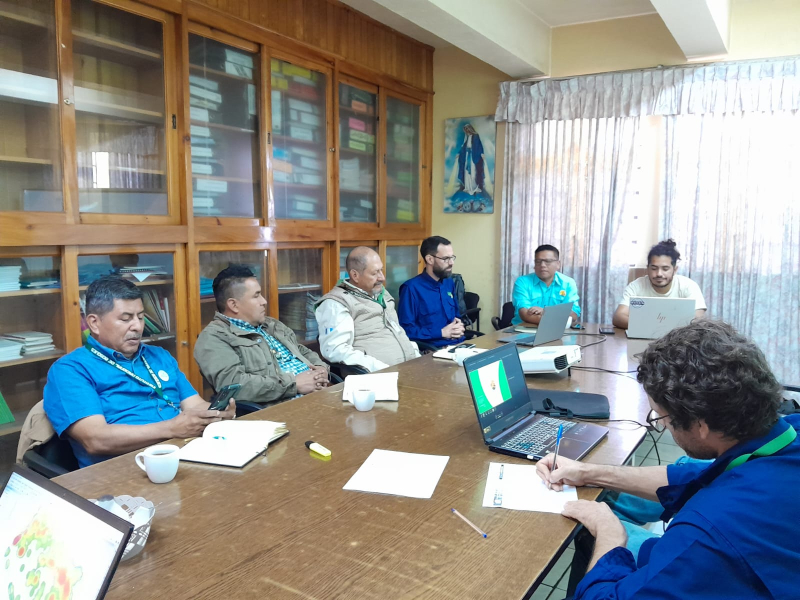
Through this active participation in the CASR, the project also engaged with representatives from municipalities overseeing Regional Municipal Parks, managers of Private Natural Reserves, and stakeholders from institutions such as the Authority for the Sustainable Management of the Atitlán Basin, NGOs like the Private Natural Reserves Association, and other conservation projects operating within the region.
Another important objective of the project is to stabilise the rate of loss of key ecosystems due to forest fires in the Zunil-Atitlán-Balam Juyú Biocultural Corridor. The planning process of the integrated fire management strategy has begun, working hand in hand with the National Forest Institute. It has started by reviewing and analysing historical data sets of forest fires that cover more than one decade to establish the baseline. This strategy will be aligned with the Biocultural Corridor update planning process and will also carry out activities such as training, equipping firefighters and fire prevention activities.
The project also collaborates with seven municipalities and their environmental teams from Santa Clara La Laguna, Santa Maria Visitación, San Pablo La Laguna, San Marcos La Laguna, Santiago Atitlán, San Lucas Tolimán, and Sololá. This collaboration has been fundamental to the project, to support on governance, conservation planning, restoration, and coffee renewal activities.
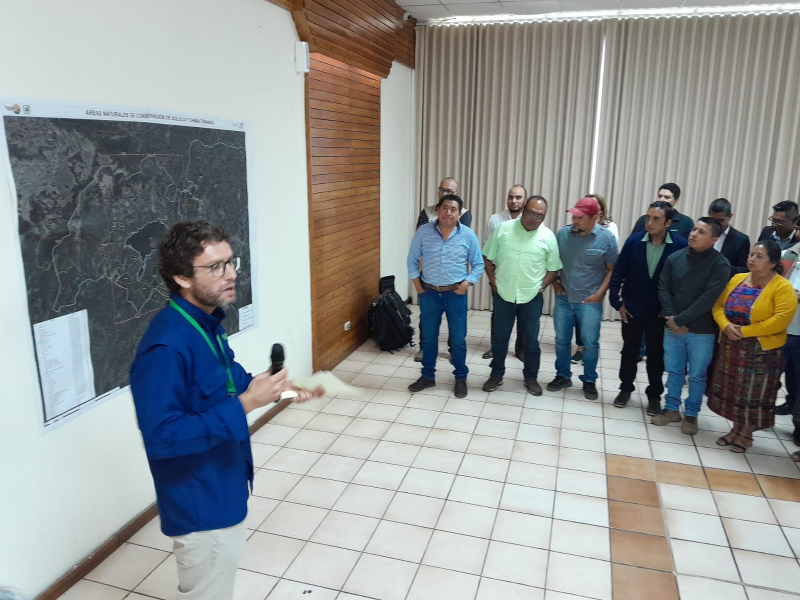
Regarding the rest of conservation planning activities, workshops to update management plans are underway for three of the four planned conservation areas. It had already been updated with the geographic, social, economic and environmental information for Chuiraxamoló Regional Municipal Park and Iquitiú Conservation Area with participation of the managing municipalities and relevant stakeholders for each area. Working to update the management plans for all four conservation areas will continue throughout the next year.
All these institutional and community strengthening efforts seek to achieve inclusive involvement and governance of the area's natural resources by its inhabitants, which will allow sustainable management over time to reduce fires, restore the biological connectivity of the area and improve their economy through the conservation and use of biodiversity.
Written by Catalina Godoy. For more information on this Darwin Initiative Main project 30-006, led by TNC, please click here.
 Back
Back